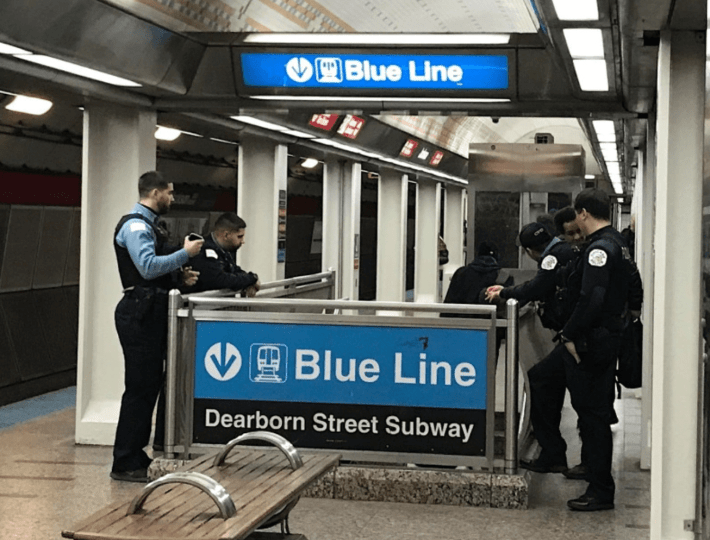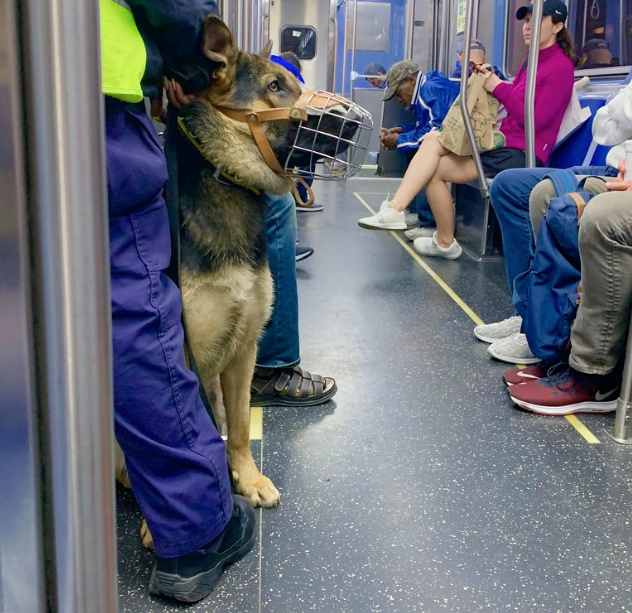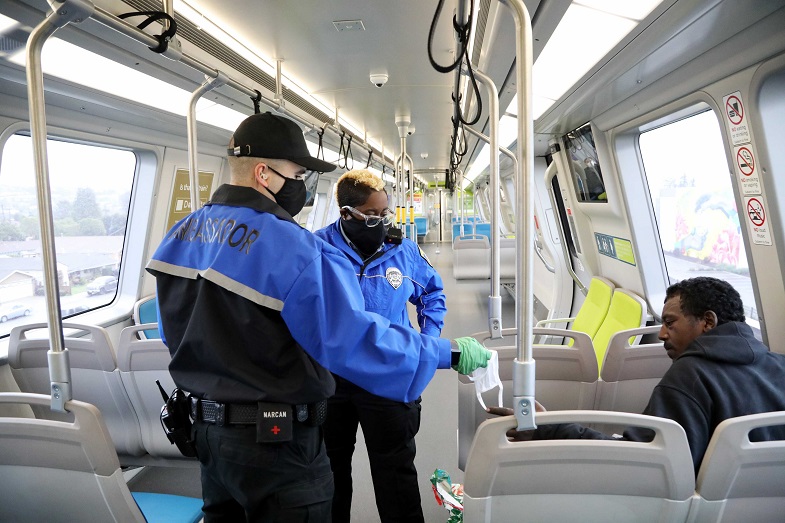In the wake of unacceptably frequent recent incidents of violence against CTA employees, many potential solutions have been discussed by union leaders and transit officials. These range from stiffer penalties for people who attack public transportation workers, the ability to ban offenders from CTA property, and an in-house CTA police force, similar to Metra police.
But one best practice that hasn't been publicly talked about by local leaders is unarmed Transit Ambassadors. As peer systems like the San Francisco Bay Area’s BART system have shown, these outreach workers are an effective way to deter crime and promote compliance with important rules, such as mask mandates and smoking bans, without significantly increasing the potential for the enforcement of minor infractions to end in bloodshed. These workers receive de-escalation and anti-bias training before deployment.
When Transit Ambassadors encounter crises where an armed response is warranted, they radio for police backup. But while BART’s ambassadors conducted over 12,000 “educational interactions” with riders during the first year of the program, according to the transit agency, out of those incidents, the ambassadors only called police on 132 occasions. That’s about 1.1 percent of the cases.
It took a while, but Streetsblog finally got the CTA on record about the possibility of piloting a Transit Ambassadors program. We've also reached out to local transit union leaders and will update this piece if we hear back from them.
"While the CTA is not currently planning a Transit Ambassador program, we continue to monitor other programs at the handful of U.S. transit agencies that have them to learn from their experiences," the CTA said in a statement. The agency noted that BART's program uses personnel from the local transit police department and includes 10 ambassadors. The CTA added that other transit systems’ ambassador programs are part of law enforcement, not the transit agency.
"Maintaining a safe and comfortable environment for customers is something CTA strives for every day, and we’re always exploring ways to improve on our existing efforts," the statement said. "CTA already puts forth a number of efforts toward this goal – first and foremost though our customer service assistants, who are assigned to every rail station, providing a visible point of contact for customers. The customer service assistants regularly engage with customers in stations: answering questions, providing directions, and addressing any issues or unwanted behavior that may occur. Other CTA employees, especially operators, are also on the front lines, able to address issues."
The agency added that CTA also provides messages to customers throughout the system about courteous behavior, plus "ample" reminders about system rules.
"The Chicago Police Department, which provides law enforcement on the CTA, also interacts with customers," the statement said. "The CPD’s Transit Rider Interaction Program is a strong example of promoting positive interactions with customers as well as awareness of CTA efforts to improve the customer experience."

According to the CTA's web page on security matters, the TRIP program launched as a pilot in March 2017 and deploys uniformed police officers at station platforms. "Officers board arriving trains to both serve as a deterrent to crime and also respond to any incidents or inquiries from customers, the page states. "The effort does not impact service and is designed to increase visibility and awareness of ongoing safety and security efforts on the system."
It its statement to Streetsblog, the CTA noted that the agency also uses contracted, unarmed private security guards throughout the system, to supplement policing.

Active Transportation Alliance spokesperson Kyle Whitehead provided a response to the CTA statement. "Safety is a top concern for CTA riders and it’s often cited as a reason why many Chicagoans choose not to ride transit. Anyone who routinely rides transit or knows someone who does can cite examples of incidents where a lack of support from CTA personnel left people unsafe or uncomfortable."
"Clearly CTA’s current approach is not working, and the agency should be doing more to help riders feel safe and comfortable on transit vehicles, especially with unprecedented levels of federal operating support available over the next few years," Whitehead added. "Unarmed Transit Ambassadors who are social workers trained in de-escalation and trauma-informed services could help defuse situations before they escalate to conflict. They could also provide resources and assistance to riders who simply need a friendly face or a helping hand as they navigate the system."
Whitehead argued that customer attendants, unarmed security guards, and police officers are not currently filling the void for situations where a trained social worker could provide a more specific intervention or support. "Transit operators certainly already have enough to deal with and shouldn’t be asked to take on this responsibility."
"A different approach is long overdue," Whitehead concluded. "The least the CTA could do is give it a try and launch a pilot program like its peer cities across the country."




